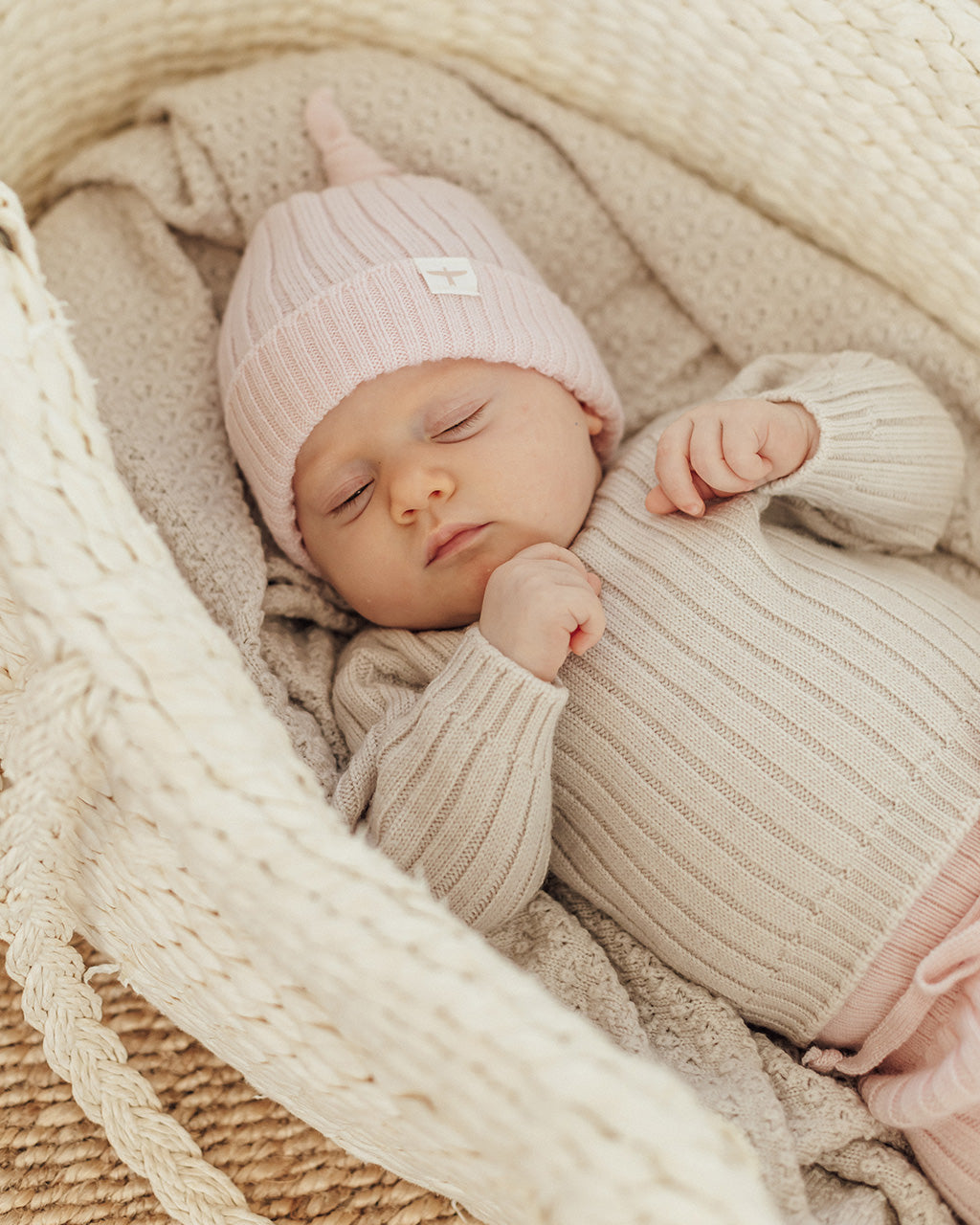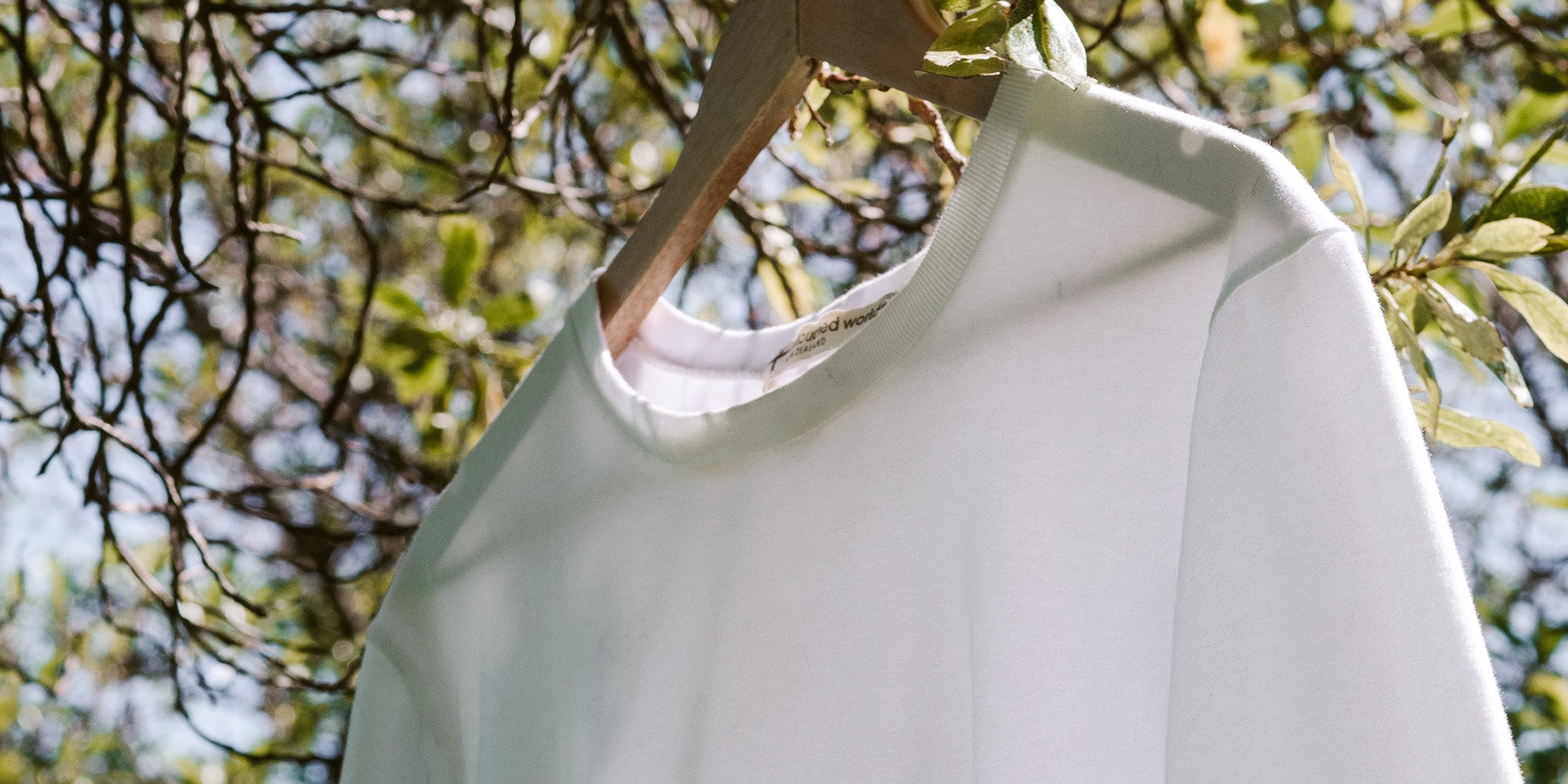Organic Cotton
When cotton is called for, we source certified organic cotton fibre wherever possible, because it's so much better for you and the planet than conventional cotton. When you choose organic cotton you are helping to build healthier and more financially sustainable communities by supporting organic farmers to create soil that nurtures life, protects biodiversity, and keeps the air and waterways unpolluted.
Organic Cotton Stretch
Our Organic Cotton Stretch is made from very fine, high quality cotton with elastane for added stretch and recovery.
Why it's good for you?
- Kind on skin — Organic cotton is soft on the skin yet durable.
- Breathable — It breathes to help keep you feeling cool and fresh.
- No nasties — Organic cotton is a great choice if your skin is sensitive, as there are no harsh chemicals embedded in the fibres. Our certified organic cotton garments are grown without the use of toxic and persistent pesticides or fertilisers, sewage sludge, irradiation or genetic engineering and they are certified by an accredited independent organisation*.
- Safer for everyone — Organic Cotton is much safer for farmers, animals, the environment and you! Although cotton is grown primarily for its fibre, the pesticides used in conventional cotton farming can enter the human food chain. Beef and dairy cows are fed cotton straw, cotton seed meal and waste from cotton gins, and cottonseed oil is used in processed foods.
Why it's good for the planet:
- Low impact — Organic cotton needs 88% less water than thirsty conventional cotton which requires 2,700 litres of water just to make one t-shirt! The energy required to create organic cotton is 62% lower than conventional cotton.
- Regenerative — Organic cotton is regenerative, thanks to its potential to sequester carbon from the atmosphere and improve biodiversity.
- No nasties — Instead of using herbicides and pesticides, organic cotton farmers enlist insect allies, known as beneficials that feed on the pests, leading to a greater crop yield while the beneficials gain a food source. Conventional cotton fields are sterile environments filled with chemicals to fight insects, weeds and diseases. While only 3% of the world's land grows cotton, the sector takes up 10% of the world's total herbicide use and 25% of pesticide use. Farmers using these chemicals are caught in an expensive downward spiral – the more pesticides used, the more resistant the insects become, forcing farmers to apply even higher concentrates.
- Building healthier soil — Organic cotton builds strong soil through crop rotation and retains water more efficiently thanks to the use of manure as fertiliser, increasing the organic matter in the soil. Synthetic fertilisers promote top soil loss due to a predominant mono-crop culture, requiring extensive irrigation.
- Microplastic-free — Entirely natural, organic cotton garments are free from microplastics that pollute our waterways, air and soil.
Project U™
Made from 100% Fairtrade Organic Cotton Project U™ is a not-for-profit capsule collection that supports two great causes, while you sport signature Untouched World style.
Each garment is ethically made in Kolkata, India by women who were once marginalised and trapped by poverty and prostitution and now work in a dignified and caring environment.
Why it's good for you?
- Feel good factor — You can enjoy the 'feel-good factor when you wear garments from this collection knowing you've positively contributed back to the community and the planet!
- Soft on skin — Organic cotton has a beautifully soft handle and is kind on skin.
- Breathable — It breathes to help keep you feeling cool and fresh.
- No nasties — Organic cotton is a great choice if you have sensitive skin as there are no harsh chemicals embedded in the fibres. Our certified organic cotton garments are grown without the use of toxic and persistent pesticides or fertilisers, sewage sludge, irradiation or genetic engineering and they are certified by an accredited independent organisation*. That means no nasties next to your skin.
- Safer for everyone — Organic Cotton is much safer for farmers, animals, the environment and you! Although cotton is grown primarily for its fibre, the pesticides used in conventional cotton farming can enter the human food chain. Beef and dairy cows are fed cotton straw, cotton seed meal and waste from cotton gins, and cottonseed oil is used in processed foods.
Why it's good for the planet.
- Fair for everyone — Fairtrade helps protect farmers and workers against erratic market prices by setting a minimum price. This ensures everyone will still earn enough to cover the basic costs of living.
- Empowering vulnerable communities — The women who make these t-shirts are empowered with new skills and offered jobs in a dignified, caring environment, where they are paid around twice the going rate for an equivalent job elsewhere. Women are also provided with health insurance and a pension plan, giving them hope for the future and helping to set them and their families up for a better quality of life.
- Future focused — All profits from this collection help to fund the Untouched World Foundation, which provides practical 'Leadership for a Sustainable Future' programmes for young adults. The programmes educate and inspire our young people, equipping them with the knowledge to lead the way towards a more sustainable future.
- Low impact — Organic cotton needs 88% less water than thirsty conventional cotton which requires 2,700 litres of water just to make one t-shirt! The energy required to create organic cotton is 62% lower than conventional cotton.
- Regenerative — Organic cotton is regenerative, thanks to its potential to sequester carbon from the atmosphere and improve biodiversity.
- No nasties — Instead of using herbicides and pesticides, organic cotton farmers enlist insect allies, known as beneficials, that feed on the pests, leading to a greater crop yield while the beneficials gain a food source. Conventional cotton fields are sterile environments, filled with chemicals to fight insects, weeds and diseases. While only 3% of the world's land grows cotton, the sector takes up 10% of the world's total herbicide use and 25% of pesticide use. Farmers using these chemicals are caught in an expensive downward spiral – the more pesticides used, the more resistant the insects become, forcing farmers to apply even higher concentrates.
- Safer for everyone — Organic cotton builds strong soil through crop rotation and retains water more efficiently thanks to the use of manure as fertiliser, increasing the organic matter in the soil. Synthetic fertilisers promote top soil loss due to a predominant mono-crop culture, requiring extensive irrigation.
- Microplastic-free — Entirely natural, Project U™ garments are free from microplastics that pollute our waterways, air and soil.
Denim
Our range of denim fabric is sourced from ISKO and is made using eco-friendly organic cotton and post-consumer recycled polyester from PET bottles.
Why it's good for you?
- Kind on skin — It's kinder on your skin as organic cotton is created without herbicides or pesticides.
- Durable — These premium quality denims are long-lasting and durable, so you can enjoy them season after season.
Why it's good for the planet?
- Low impact - ISKO offers responsibly innovated denim fabrics and is the only denim mill in the world to be awarded the prestigious Nordic SWAN Ecolabel for several articles within its Earth Fit denim collection. Nordic Ecolabel evaluates a product's total life cycle from raw material to waste/recycling. This achievement came through ISKO's fulfillment of strict requirements for sustainable fibres and chemicals used in every stage of production and caring for social and environmental impacts.
BCI Cotton
BCI stands for the Better Cotton Initiative. We use BCI cotton when we can't source Organic Cotton. Better Cotton Initiative produces yarn which has been grown to a set of environmentally kind treatments.
Why it's good for you?
- Kind on skin — BCI cotton is grown to standards that stipulate minimal chemical usage, meaning it's gentler on your skin.
Why it's good for the planet?
- Building healthier soil — Practices used to grow BCI cotton encourage healthy soil.
- Low impact — BCI cotton is created using water efficiently and standards put in place ensure minimal chemical use, and the prohibition of hazardous pesticides.
- Fair for everyone — BCI cotton promotes fair working conditions
- Microplastic-free — Entirely natural, BCI Cotton garments are free from microplastics that pollute our waterways, air and soil.












